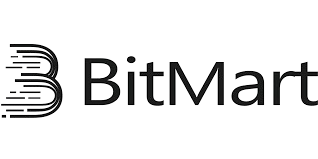Summary
Cryptocurrency trading is legal in Uzbekistan, with the National Agency for Project Management (NAPM) serving as the primary regulatory body. The Uzbekistani Som (UZS) is supported by major crypto exchanges, with bank transfers and credit cards being the primary payment methods. The country maintains a progressive stance on digital assets through the “On measures to develop the digital economy in the Republic of Uzbekistan” decree. Here are the best crypto exchanges in Uzbekistan ranked by features and reliability:
Best Crypto Exchanges in Uzbekistan
Uzbekistan’s cryptocurrency market has evolved significantly since the government’s implementation of regulatory frameworks in 2018. Local traders benefit from access to international exchanges that support Som (UZS) transactions through various payment methods including bank transfers, credit cards, and electronic payment systems.
1. Binance
2. Coinbase
3. Kraken
4. MEXC
5. BitMart
Is Crypto Legal and Regulated in Uzbekistan?
Cryptocurrency trading is legal in Uzbekistan under the regulatory oversight of the National Agency for Project Management (NAPM). The country established its crypto framework through Presidential Decree No. PP-3832, which legitimized crypto trading activities in 2018.
The NAPM implements specific requirements for cryptocurrency platforms operating in Uzbekistan, including mandatory licensing for crypto exchanges and custody services. The Central Bank of Uzbekistan works alongside the NAPM to ensure compliance with anti-money laundering (AML) and know-your-customer (KYC) regulations.
In 2021, Uzbekistan further refined its crypto regulations through Presidential Decree No. PP-4884, which introduced additional measures for crypto market participants and established clearer guidelines for cryptocurrency mining operations.
Is Crypto Taxable in Uzbekistan?
Cryptocurrency taxation in Uzbekistan follows specific guidelines established by the Ministry of Finance. Trading profits are subject to capital gains tax at a rate of 12% for individuals. Mining income is classified as business income and taxed at the standard corporate rate of 15%.
The tax framework requires crypto traders to maintain detailed records of their transactions, including purchase prices, sale prices, and the duration of ownership. Crypto-to-crypto transactions must be calculated based on the market value in UZS at the time of the exchange.
Disclaimer:
Tax laws are subject to change, and individual circumstances may vary. It is strongly advised to consult with a qualified tax professional or financial advisor for personalized guidance on cryptocurrency taxation in Uzbekistan.
How to Buy Crypto in Uzbekistan
Purchasing cryptocurrency in Uzbekistan has become increasingly accessible through regulated platforms. Binance stands out as the leading option, offering competitive fees and extensive Som (UZS) trading pairs. The platform supports direct UZS deposits and provides access to over 350 cryptocurrencies.
- Select a cryptocurrency exchange – Verify UZS support and payment methods compatibility. Consider factors such as trading fees, available trading pairs, and security features. Ensure the platform complies with Uzbekistan’s regulatory requirements.
- Complete registration – Submit identification documents for KYC verification. This typically includes passport or national ID, proof of address, and facial verification. The process usually takes 1-2 business days for Uzbekistani residents.
- Fund your account – Bank transfers offer the most cost-effective method, with fees typically under 1%. Credit card purchases incur higher fees (3-5%) but provide instant access. Popular local payment methods include UzCard and Humo card systems.
- Choose cryptocurrency – Popular options include Bitcoin (BTC), Ethereum (ETH), or USDT. Consider starting with stablecoins like USDT for price stability, or major cryptocurrencies like Bitcoin for long-term investment potential.
- Execute trade – Place market orders for immediate execution at current prices, or limit orders to buy at specific price points. Monitor the order book and trading volume for optimal entry points.
- Secure storage – Transfer funds to a personal wallet for enhanced security. Consider the transaction fees and network congestion when timing your withdrawals.
Uzbekistani traders typically prefer bank transfers due to lower fees, while credit card purchases offer immediate access to cryptocurrencies. P2P trading platforms provide additional options for local currency transactions, often with competitive rates and increased privacy. For amounts exceeding $10,000, consider splitting purchases across multiple transactions to minimize market impact.
Best Crypto Wallets in Uzbekistan
Securing cryptocurrencies requires reliable wallet solutions that align with Uzbekistan’s regulatory framework. Hardware wallets like Ledger and Trezor provide maximum security for long-term storage, offering offline protection against cyber threats and supporting multiple cryptocurrencies.
For regular trading, software wallets such as MetaMask offer convenient access with features specifically beneficial for Uzbekistani users, including support for local DeFi platforms and compatibility with major exchanges. MetaMask’s integration with Web3 applications provides access to decentralized exchanges and yield farming opportunities.
Mobile wallets including Trust Wallet and Exodus support multiple cryptocurrencies and provide user-friendly interfaces. Trust Wallet offers built-in DApp browsers and staking capabilities, while Exodus provides detailed portfolio tracking and exchange services. Both wallets maintain security through encryption, biometric authentication, and secure backup options.
For optimal security, Uzbekistani users should implement a multi-wallet strategy: hardware wallets for long-term holdings, software wallets for regular transactions, and mobile wallets for daily convenience. This approach balances security with accessibility while complying with local digital asset regulations.
Bottom Line
For traders seeking the best crypto exchanges in Uzbekistan, Binance leads the market with its comprehensive features, extensive UZS trading pairs, and competitive fee structure starting at 0.1%. Coinbase follows as a strong alternative, particularly for those prioritizing security and regulatory compliance, offering institutional-grade storage and advanced trading tools. Both platforms maintain strict adherence to local regulations while providing robust customer support in multiple languages. Their integration with local payment methods and support for the Som (UZS) currency make them optimal choices for Uzbekistani cryptocurrency traders.








